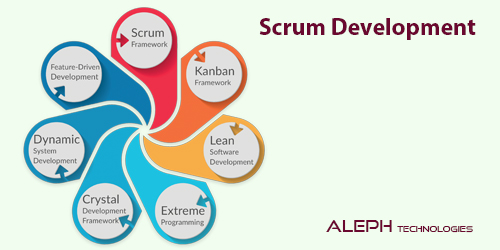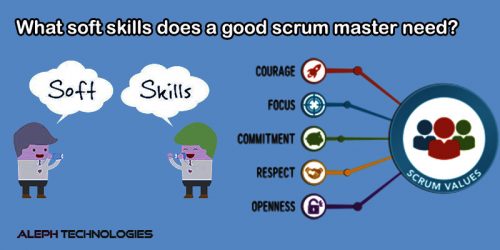🚀 Top 10 Essential Soft Skills for a Successful Scrum Master: A Guide to Agile Leadership 🌐
The role of a Scrum Master in Agile is often misunderstood, and its significance can be underestimated by those new to the methodology. Beyond being just a Scrum coach, successful Scrum Masters possess a unique blend of domain knowledge, technical expertise, and crucially, soft skills. In this guide, we'll delve into the top 10 soft skills that differentiate outstanding Scrum Masters, making them invaluable to the success of Agile projects.
Communication Skills: Crafting Messages for Success 🗣️
- In the Scrum Master role, effective communication is paramount. Whether delivering messages to the team, the customer, or project stakeholders, tailoring the message to each audience is crucial. Previous experience in education, where communicating with diverse groups was essential, translates seamlessly to the project management and Scrum Master role. 📢
Good Listening: The Art of Understanding 👂
- Successful Scrum Masters excel not only in delivering messages but also in receiving them. Being empathetic and a keen listener are invaluable soft skills. Observing behavioral cues and accurately understanding messages from different stakeholders contribute significantly to the Scrum Master's effectiveness. 🎧
Persistence: Driving Career Change and Project Success 🚀
- Persistence is a vital skill for career transitions and proves to be equally essential for Scrum Masters. Overcoming obstacles, organizing meetings, and maintaining momentum for the team require persistent effort. Leveraging the drive that led to a career change can contribute to achieving goals and success in the Scrum Master role. 💪
Facilitation: Orchestrating Productive Discussions 🤝
- Facilitating discussions and meetings is a core skill for effective Scrum Masters. Coordinating Scrum rituals and ensuring the team utilizes Scrum to its fullest potential necessitate adept facilitation skills. 📆
Accountability: A Cornerstone of Trust 🤲
- While not a skill per se, accountability is a crucial attribute for any job, including that of a Scrum Master. Demonstrating reliability and owning up to mistakes are essential for building trust with the team and the business. 🤝
Organization: Streamlining Scrum Operations 📊
- A valuable skill across industries, organization plays a key role in a Scrum Master's responsibilities. Tracking team development using Scrum artifacts and ensuring the seamless operation of Scrum processes are vital aspects of the role. 🔄
Servant Leadership: Guiding Teams to Excellence 🏆
- Servant leadership involves mentoring, coaching, and encouraging teams to reach their best selves. Drawing from past experiences in mentoring and guiding others can be immensely beneficial for Scrum Masters. 🌟
Optimism: Fostering High Morale 😊
- Maintaining optimism is crucial for Scrum Masters. Creating an environment that emphasizes the bright side of challenges contributes to high team morale and overall success. 🌈
Team Player: Championing Collaboration 🤝
- Collaboration is fundamental in a Scrum Team. Scrum Masters should create an environment that fosters collaboration and actively champions collaborative behavior. 🌐
Flexibility: Embracing Change in Agile 🔄
- Embracing change is a fundamental aspect of Agile, and Scrum Masters should be open to it. The ability to be comfortable with discomfort and guide the team through changes is a key trait for success. 🤸♂️
Related posts
-

Scrum Development: A Comprehensive Overview 🚀
Mar 25, 2024 -

Assessing Your Need and Readiness for the Scaled Agile Framework (SAFe)
Mar 25, 2024 -

The Definition of Ready (DoR) in Agile Methodology
Mar 22, 2024 -

The Technical Debt
Mar 22, 2024

Please login to check comments